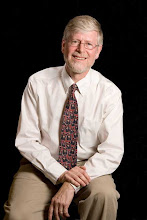
Journalist GK Chesterton once said that when people stop believing in God, it isn't that they then believe in nothing, but they'll believe in anything. This is often the case when it comes to ghosts. Having forgotten or discarded or simply not knowing what has been clearly revealed in the Scriptures, people turn to all sorts of notions that suit their personal tastes, or they turn to any person who affirms their notions. This is one reason why people turn to mediums to communicate with the dead.
It is natural, I realize, for a person to want the comfort of knowing a departed loved one is somehow all right, and most people are curious about death and life-after-death. Many people with a superficial upbringing in a church (too often a superficial Catholic upbringing) are easily led to believe that God is somehow working through these mediums - as they themselves claim - to contact the dead. What does the Bible really say about all this?
You may not accept the authority of the Scriptures, but at least you should know what they say - and the Bible clearly and consistently says consulting mediums and spiritists is dangerous.
The danger described in the Older Testament is that people will turn away from God Himself into all manners of superstition and idolatry (since such practices were done for the purpose of divination and seeking the advice of pagan deities), thereby forfeiting their place in the Covenant community. It is a violation of the first commandment to have no other gods.
The danger in the New Testament is similar, but instead of saying what people are turning away from, the description is about what people involved in such practices are turning toward - the great Deceiver and Father of Lies who easily counterfeits spiritual experience and appears as "an angel of light" (2 Corinthians 11:14) and his fellow fallen angels and demons. Celebrity mediums usually talk about encountering such a 'being of light'. So trying to contact the dead usually turns into contacting a real spiritual entity, but not the dead.
No wonder this activity - called necromancy - is so strongly rejected in places like Leviticus 19:31, 20:6, 27; Deuteronomy 18:10-11; I Chronicles 10:13-14 and Isaiah 8:19-20, for example. It is - nearly literally - playing with fire.
Moreover, Jesus' parable of the rich man and the poor beggar Lazarus in Luke 16:19-31 suggests that the dead cannot contact the living. If anyone can contact the dead, it is Jesus himself, who calls the other Lazarus out of the tomb in John 11 and who says that, one day, "the dead will hear the voice of the Son of God and those who hear shall come to life" (John 5:25).
What, then, are we to make of the Medium of Endor, whom King Saul of
There is a difference between this and the Catholic practice of requesting the prayer support of the saints, which is, in fact, a healthy corrective to occult practices. Mediums like John Edward and Sylvia Browne may claim to be faithful Catholics, but their views of humans as "divine sparks" who are part of God and whose destiny is to become perfected through many re-incarnated lives or by passing through ever-higher astral levels is not Christian in the least, but a tempting blend of the Gnostic and neo-pagan.
Finally, what are we to make of their often-correct predictions/pronouncements? Some of it is good generalized guessing, a skilled reading of people's responses to questions, and the eagerness of seekers who interpret readings in the ways they want to. But, as mentioned above, the Deceiver and his minions can disguise themselves as an angel of light (2 Corinthians
Enough about people turning to mediums here. The one we ought to turn to is Christ himself, who says, "I was dead, and behold I am alive forever, and I hold the keys of Death and Hades." So, for those who depart this earthly life in His friendship, there is a glorious future, and for those left behind, Paul says: "We grieve, but not as those who have no hope".

2 comments:
Great post! I agree that people should steer clear of mediums and turn to Christ and God's Word instead. I believe Satan and the demons revel in the occult, as occultism takes the focus off God and places it on the Devil's henchmen (i.e. mediums, psychics, etc.) and ultimately the Deceiver himself.
[Please visit my blog at www.jjhebertblog.com and feel free to comment]
Still, we must be kind to those who are entrapped by the occult, as they are usually sincere seekers of truth - and have just looked in the wrong place. Secondly, we must exercise 'discernment of spirits,' as Paul says, since there are genuine gifts of Second Sight and, as CS Lewis suggested, a sixth sense that is perfectly natural in us all but dimmed (or lost entirely) by The Fall.
Post a Comment